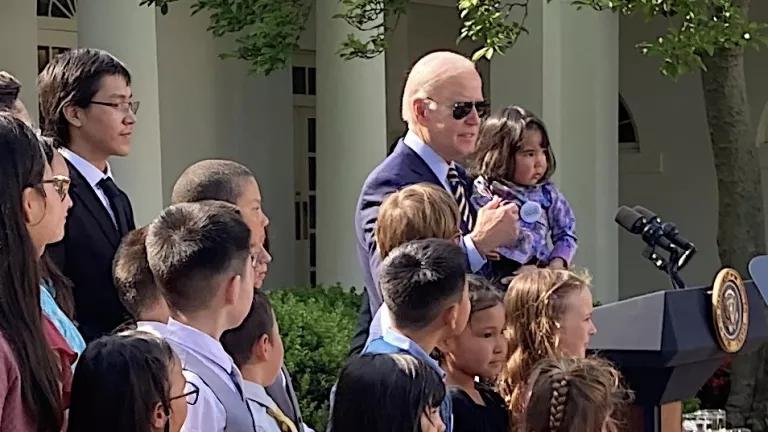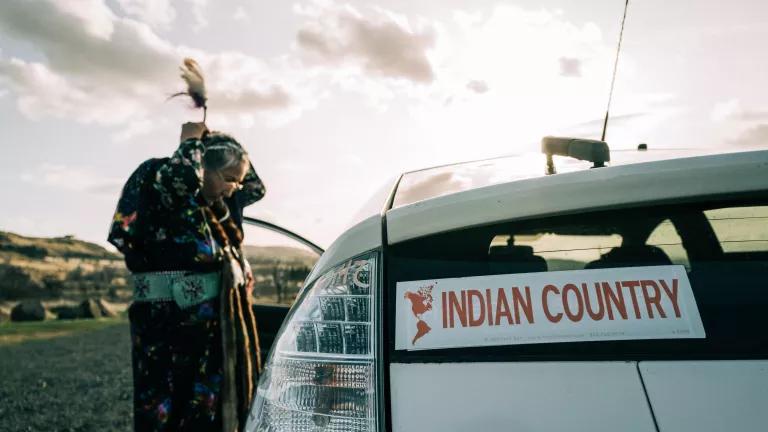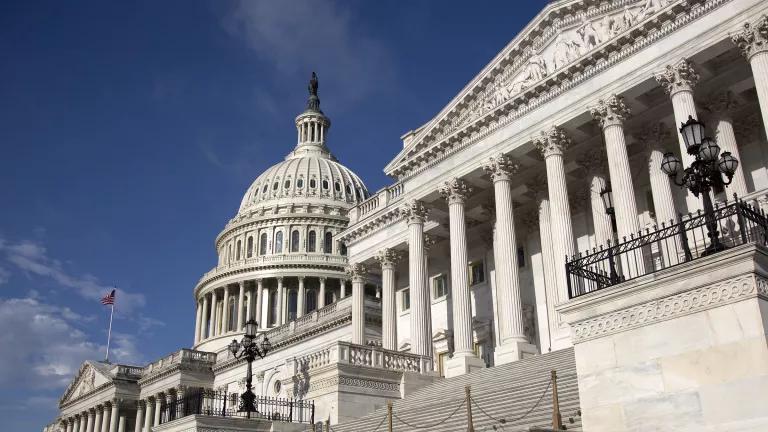
The groundbreaking ceremony at Wishing Tree Park
Special thanks to my NRDC colleagues Dani Garcia and Helen O'Shea for their contributions to this blog post.
The Biden-Harris administration recently celebrated its investment to expand and increase equitable access to nature for nature-deprived communities in the United States.
Ten federal departments and agencies signed this memorandum of understanding (MOU) and are now a part of an interagency group called the Nature in Communities Committee, housed within the White House Council on Environmental Quality. The participating federal agencies include the EPA, AmeriCorps, and Departments of the Interior, Agriculture, Army, Commerce, Homeland Security, Housing, Transportation and Urban Development.
By signing this MOU, the agencies pledged to collaborate with and support local efforts to improve access to nature and expand and conserve natural spaces for all Americans—particularly for marginalized and overburdened communities.
NRDC has long advocated for equitable access to nature and recognizes the essential role that nature has in creating and maintaining thriving and healthy communities. A growing body of research indicates that spending time outdoors can contribute to improved physical health, emotional well-being, and cognitive function. There are numerous communities throughout the nation that are nature-deprived and have no reliable or safe access to outdoor spaces within their neighborhood. Many of these same communities are also disproportionally affected by environmental hazards like toxic air pollution, extreme heat, and flood risks that will only be made worse by the climate crisis.
There are existing federal programs that are currently addressing the issues outlined in the MOU, and this newly created Committee is charged with broadening these programs. The MOU outlines a number of steps to achieve the Committee’s goals of increasing locally-led conservation, park, and green and blue space projects. They include identifying nature-deprived communities, increasing access to nature and its benefits, enhancing collaboration, improving public health and safety, developing community leaders and capacity, building trust, and ensuring long-term continuity. The MOU ensures that the process for reaching its goals will be guided by science, evidence, and Indigenous Knowledge. We strongly support the Biden administration's recognition of Indigenous Knowledge and encourage further consultation with and inclusion of tribes.
This increased commitment to underserved and marginalized communities that are deprived of equitable access to nature comes as part of the America the Beautiful initiative, a decade-long challenge to pursue a locally led and voluntary, nationwide effort to conserve, connect, and restore the lands, waters, and wildlife upon which we all depend, a Biden-Harris administration commitment to conserve and provide recreational access to public lands and waters. One of the six focus areas of the Conserving and Restoring America the Beautiful report is to support those working locally to increase access to parks and open space for nature-deprived communities. The signing of this MOU helps actualize the recommendations in this report.

A significant increase of investments in parks and green and blue spaces brings us one step closer to closing the equity gap that disproportionately affects low-income communities of color. Wishing Tree Park in West Carson, an incorporated community in Los Angeles County, is an example of the kind of project we hope the MOU will support. Our friends at the LA Neighborhood Land Trust alongside community partner Del Amo Action Committee successfully advocated for this project on a remediated brownfield—a formerly contaminated and polluting site that will soon be a much-needed community gathering space and provides access to nature for nearby residents. This effort is an example of the transformative type of project we hope to see the Committee replicate.
We are thrilled that the Biden-Harris administration recognizes access to parks and green and blue spaces as a critical nature-based solution to address people’s mental and physical health challenges and an important tool for mitigating the catastrophic impacts of climate change.





